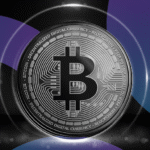A recent survey conducted by the DeFi Education Fund (DEF) has unveiled that over 40% of Americans are open to utilizing decentralized finance (DeFi) protocols, contingent on clearer regulatory guidelines surrounding crypto privacy. The survey was published on September 18 after extensive polling and in-depth interviews in the Bronx and Queens, revealing a notable shift in public sentiment towards financial autonomy.
The survey, which included responses from 1,321 U.S. adults, indicated widespread frustration with traditional banking systems. Many participants expressed a desire for enhanced control over their financial assets and data, positing that DeFi innovations could provide a pathway to more equitable and affordable financial solutions.
Among the key findings, 42% of respondents indicated they would likely engage with DeFi if relevant legislation is enacted, with 9% stating they are “extremely” or “very” likely to adopt these protocols. A substantial 84% revealed they would be inclined to use DeFi for online purchases, while 78% expressed interest in utilizing it to pay bills. A further 77% cited saving money as a potential use case, and 12% indicated a strong interest in learning more about DeFi.
The survey also highlighted a critical perspective: 39% of Americans believe that DeFi could effectively alleviate high transaction and service fees associated with traditional finance. Despite DeFi being a relatively nascent concept, the interest is palpable, with 18% of the surveyed population having owned or used cryptocurrency at some point. Additionally, 22% expressed a desire to deepen their understanding of nontraditional financial systems such as blockchain and DeFi.
More than half of the respondents, approximately 56%, conveyed a strong determination to reclaim control of their finances. This sentiment was echoed in personal anecdotes, including a Bronx resident’s frustration over a bank’s restrictive policies regarding fund transfers, reflecting a broader yearning for financial autonomy and independence from intermediaries.
The research also noted a heightened preference for digital money transfer methods devoid of third-party involvement, with 66% of foreign-born Americans particularly supportive of this notion. The findings underscore an urgent demand for DeFi solutions that address existing frictions in the current financial landscape.
In parallel with these emerging consumer attitudes, the DeFi Education Fund has advocated for more transparent regulatory measures concerning decentralized finance. They have urged the U.S. Senate Banking Committee to reconsider its proposed regulatory frameworks, emphasizing that the Responsible Financial Innovation Act of 2025 should better align with the needs of crypto developers rather than imposing inappropriate regulations more suited for traditional financial intermediaries. The committee continues to refine its draft, aiming to foster innovation within the $162 billion DeFi sector while ensuring consumer protection and financial stability.
Reinforcing this progressive outlook, U.S. Federal Reserve Governor Christopher Waller recently stated that there should be no apprehension regarding crypto payments operating beyond traditional banking systems, sparking optimism that DeFi could emerge as a key financial infrastructure for both Americans and the global economy.







